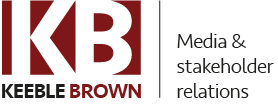Silence says you consent.
Social issues get the country, and consumers, talking. The murder of George Floyd in the US city of Minneapolis has achieved global media attention and put a rocket under the BLM movement. From the #MeToo to #Icantbreathe protests, petitions and social media campaigns have dominated the media, even managing to break through coverage of the Covid-19 pandemic.
It is the realisation that having no opinion is not an option that sets these campaigns aside and explains why so many brands have sought to make their sympathies and understanding known – from publishing statements of solidarity to posting the infamous ‘black out Tuesday’ square on social media. Others have simply kept hush.
While there was once a debate over ‘appeasement vs alienation’ in corporate branding strategy, this has been lost to the prominence and leverage of social issues in today’s modern context. From transgender issues to ‘Black Lives Matter’, everyday sexism to sexual abuse, social issues that were once taboo are not only mainstream but defining in terms of media traction and influence over consumer practices.
Companies who advocate for a cause are more likely to see the rewards. A 2018 survey that spanned 35 countries found that 64% of consumers would make purchasing decisions based solely on a brand’s position on a social issue. The Edelman study found that values-based communication is just as effective as product-based branding. Brands and companies who avoid taking a stance on a social issue now risk upset and criticism from the public. Morality is seemingly in, and passivity is out.
So how should companies go about this political conundrum?
Find your voice. ‘To be silent is to be complicit’. Brands who do not speak up must ask themselves why. CEOs are thrown into the spotlight for their stance on social issues, making clear that ‘fence sitting’ is no longer a valid option in today’s modern world. Leaders who are scared to advocate for a cause in case they alienate others must assess the validity and strength of the cause, and how it aligns with their own values. Advocating for a moral cause or social issue is unlikely to drive away today’s ‘belief driven’ consumers. Companies must now ask themselves whether having no voice is equivalent to having an unfavourable one.
Be authentic. Transparency is key. Companies should back social causes that they truly believe in and follow through on their support. Brand activism is a great way to engage potential consumers, but customers want to take companies at their word. Some famous brands are being accused of hypocrisy in the anti-racism movement that has swept the globe. Nike have recently backed BLM and back in 2016 placed American Football star Colin Kapernick in their 30th advertisement campaign. However, attention soon shifted to Nike’s own diversity board. BBC coverage drew attention to the fact that less than 10% of its 300-plus vice presidents were black. Companies should be mindful of their policies and abilities, as actions truly speak louder than words.
‘Nothing can be changed until it is faced’.
Organisations struggling to assert their voice, or even find it, in current turbulent times should seek to draw upon their own ethical values to guide their plans. Fear of consumer alienation should not rule the strategy in today’s ‘belief driven’ consumer industry. Take a stand and see the results.
The Keeble Brown team can advise on finding your voice as an organisation. Get in touch for a confidential discussion on how we could support you. All our details are at https://bit.ly/3av7cNI.


